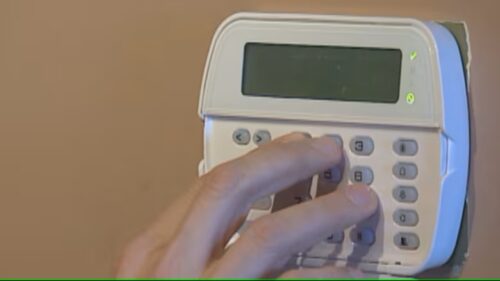
2.14.24 – CBC
New condition requires keyholder to attend scene of alarm for police response
More than a year after Saint John police cracked down on false alarms at businesses, the force has implemented a more stringent condition to further tackle the problem.
Staff Sgt. Sean Rocca said that after the policy was adopted in November 2022, there was an 11 per cent reduction in commercial false alarm calls — from around 800 that year to 700 the next.
But that still amounted to about 59 such calls per month.
“These types of calls do divert our officers away from true emergencies and place unnecessary burden on our resources,” said Rocca.
“It was decided that we needed to take additional steps to continue to aim at reducing the number of false calls that we were responding to.”
False alarms can occur if a building’s alarm is tripped in some way or by outdated equipment, which will then trigger a call to the alarm company to contact the owner of the business.

The new condition requires the keyholder, the person responsible for opening and closing the business, to be at the scene to meet police. When the alarm company calls the business about the alarm, if the keyholder decides not to go to the scene, police won’t either.
Rocca said that when reviewing the policy’s performance, the team noted that officers were responding to a number of commercial alarms where the keyholder would not show up.
“It can take our officers anywhere between, you know, a half an hour upwards to an hour or more, depending on if they are waiting for a keyholder to respond to a false alarm, which is a significant amount of time,” said Rocca.
“But more importantly, if an officer is at an alarm call, they can’t leave to respond to a true emergency.”
The condition does not apply to schools, hospitals, financial institutions, or residences, he said. It also doesn’t apply to hold-up alarms or panic buttons, which can be pressed to alert authorities to an emergency.
The original policy was put into place to curb false alarms, mostly security alarms from businesses.
The policy says:
- A caution notice issued if a business has two false alarms in one calendar year.
- After four in a calendar year, a suspension notice is issued.
- Under the suspension notice, $100 is invoiced to the business for every additional false alarm during that suspension period.
- If three invoices are issued in this time and not paid on time, police response will be discontinued.
Rocca said no fines have been issued since the implementation of the policy.
He said that when a keyholder doesn’t respond, it is difficult for police to actually properly check the premises to confirm there’s no issue, which they can’t do if it’s locked.
There’s still some discretion, said Rocca. If, for some reason, the keyholder or secondary contact can’t respond for a valid reason, that would be taken into consideration, he said.
The new condition will also not affect a business owner’s ability to file a police report if there does turn out to be criminal activity and neither the keyholder nor police responded, Rocca said.
Rocca said he didn’t have the stats on how Saint John’s false alarm numbers compare to other jurisdictions, but he did say it’s common for police forces across the country to have similar policies aimed at reducing false alarm calls.
In Fredericton, a spokesperson said in an email that the police force has a policy that invoices businesses after three false alarm calls, per location, in a year, but cancelled responses are not included in that.
In 2023, the force received 504 false alarm calls.
ABOUT THE AUTHOR
Journalist
Hannah Rudderham is a reporter with CBC New Brunswick. She grew up in Cape Breton, N.S., and moved to Fredericton in 2018. You can send story tips to hannah.rudderham@cbc.ca.
